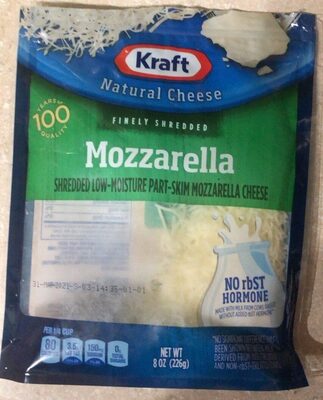
Barcode: 021000055166
Mozzarella Cheese
HALAL
📝 Reason: This Mozzarella Cheese product contains generally Halal ingredients, except for ‘enzymes’, whose source is not specified. In cheese making, enzymes (such as rennet) may be derived from animal stomachs, commonly calves, and unless specifically labeled as microbial or Halal-certified, are considered Doubtful. According to Quran 5:3 and Halal authorities (IFANCA, HFA), foods that may include animal-derived ingredients without proven Halal certification are regarded as Doubtful. All other ingredients are plant-based or otherwise Halal by default.
🏷️ Category: Dairies, Fermented Foods, Fermented Milk Products, Cheeses, Italian Cheeses, Stretched Curd Cheeses, Mozzarella
📄 Certificates: Vegetarisch
Ingredients:
Details
Understanding the Halal Status of Mozzarella Cheese
Mozzarella Cheese is a popular dairy product enjoyed worldwide, but for many consumers, particularly in the Muslim community, understanding its Halal status is vital. In this post, we will explore whether Mozzarella Cheese is Halal and discuss its ingredients, including the controversial enzyme component.
What Does Halal Mean?
Halal, meaning ‘permissible’ in Arabic, refers to what is lawful and allowed in Islam. For food products, determining whether they are Halal involves examining the source of their ingredients and how they are processed. According to Islamic dietary laws, animal-derived ingredients must come from animals that are slaughtered according to Islamic principles and should not involve any Haram (forbidden) substances.
Ingredients of Mozzarella Cheese
The typical ingredients of Mozzarella Cheese include:
- Pasteurized part-skim milk
- Cheese culture
- Salt
- Enzymes
- Modified cornstarch
- Natamycin
Ingredient Analysis
1. Pasteurized Part-Skim Milk
This ingredient is derived from cows and is widely accepted as Halal. It is pure milk that does not come from Haram animals or sources. According to IFANCA and Quran 16:66, it is certified Halal.
2. Cheese Culture
Cheese culture usually refers to harmless lactic acid bacteria starter cultures that are fundamental in cheese production. This ingredient does not involve any Haram sources, making it Halal. For further reference, you can check Halal Food Authority.
3. Salt
Salt is a mineral naturally found in the environment and is categorized as Halal. There are no concerns regarding its consumption regarding Halal dietary laws.
4. Enzymes
The source of enzymes can be tricky as they may derive from animal rennet, commonly extracted from calves. If unspecified, they are considered Doubtful. For Halal purposes, if the enzymes are microbial or plant-based, they are regarded as Halal. This lack of clarity surrounding enzymes raises concerns. Please visit Halal Food Authority for further details.
5. Modified Cornstarch
Derived from plants (usually corn), modified cornstarch is typically considered Halal. It does not have a history of being derived from any Haram source.
6. Natamycin
Natamycin, or E235, is an antifungal agent produced by the bacterium Streptomyces natalensis. It is considered Halal as it is not derived from Haram sources. For more about food additives, check Halal Food Authority.
Conclusion
In summary, while the majority of ingredients in Mozzarella Cheese are Halal, the enzymes pose a potential concern. It’s important to ensure that the enzymes used are either microbial or Halal certified to ascertain the complete Halal status of the product. Consumers looking for Halal cheeses should always check for certification and transparency regarding specific ingredients such as enzymes.
By being educated about the ingredients in products such as Mozzarella Cheese, Muslim consumers can make informed choices that align with their dietary preferences and religious beliefs.
